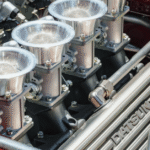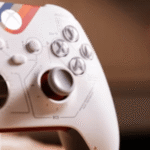The term modern man captures more than just a description of a male living in today’s society; it represents the shifting ideals, roles, and responsibilities that men carry in the twenty-first century. When people ask about the modern man, they are often looking for clarity on what defines masculinity today, how traditional expectations compare with contemporary demands, and what values shape identity in an increasingly globalized, digital, and emotionally complex world. Within the first glance, the modern man is seen as someone who adapts to balance work, relationships, mental health, and personal growth. He is no longer confined to outdated molds of stoicism or rigid breadwinning roles but instead embraces flexibility, empathy, and multidimensional purpose.
This transformation is significant because it reflects the evolution of society itself. The modern man is a product of shifting cultural values, technological revolutions, and diverse perspectives on gender roles. Unlike the past, where his worth might have been measured solely by financial stability or physical strength, today’s man is evaluated through his ability to balance professional ambition with authenticity, self-awareness, and inclusivity. He is someone expected to cultivate emotional intelligence while still embracing strength, and to be ambitious while remaining grounded in personal ethics.
In this article, we will explore the characteristics of the modern man, his challenges, and how he navigates a world that demands both adaptability and resilience. Through perspectives on work, relationships, appearance, values, and societal expectations, we will uncover how this redefined identity impacts not only individuals but also communities at large. Readers will find practical insights, cultural observations, and relatable examples that help clarify why the concept of the modern man is more than a passing phrase—it is a cultural marker of ongoing transformation.
Characteristics of the Modern Man
The modern man is characterized by adaptability and openness to change. He thrives in an environment where tradition and innovation collide, choosing to integrate the lessons of the past with the demands of the present. Empathy stands at the forefront of his qualities, enabling him to form deeper relationships both in personal and professional spaces. At the same time, ambition and self-drive remain essential, ensuring he does not lose sight of personal goals. Unlike previous generations, the modern man values self-reflection and is not hesitant to address vulnerabilities or seek help when necessary.
Education, curiosity, and a willingness to learn beyond comfort zones define his outlook. Whether it is learning about cultures, adopting healthier lifestyles, or expanding professional skills, he seeks growth as a lifelong pursuit. He also values equality and sees women as partners rather than dependents, reshaping the dynamics of family and relationships. A notable characteristic is his embrace of individuality—expressing himself in style, hobbies, and interests without fear of judgment.
Balancing Tradition with Progress
The modern man faces the unique challenge of balancing tradition with progress. He carries the weight of inherited expectations—provider, protector, leader—yet also embraces the progressive ideals of equality, emotional openness, and shared responsibility. This duality often creates tension, but it is also what makes his identity dynamic. For instance, he may be expected to succeed financially, yet he is also judged by how nurturing or emotionally available he is in his relationships.
Cultural differences further shape this balance. In some societies, tradition still dictates strict masculine roles, while in others, progress demands rapid adaptation. The modern man navigates these contrasting expectations by choosing which values to honor and which to transform. He may hold on to discipline, integrity, and resilience from traditional ideals while rejecting outdated ideas of dominance or silence. His evolution, therefore, reflects a society constantly negotiating between history and modernity.
Table 1: Traditional Man vs. Modern Man
| Aspect | Traditional Man | Modern Man |
|---|---|---|
| Emotional Expression | Stoic, emotions hidden | Open, embraces vulnerability |
| Role in Family | Primary breadwinner, authority figure | Shared responsibilities, partnership model |
| Work Identity | Defined solely by profession | Balanced with personal life and passion |
| Style & Grooming | Conservative, practical | Expressive, trend-conscious |
| View on Gender Roles | Rigid, defined by tradition | Flexible, supports equality |
Relationships and Emotional Intelligence
One of the most defining aspects of the modern man is his approach to relationships. Unlike older models that valued distance and authority, today’s man is expected to cultivate emotional intelligence. This means listening actively, empathizing with partners, and nurturing a sense of shared growth. Romantic relationships now thrive on partnership, where both individuals bring equal emotional and practical contributions. The modern man, therefore, does not see emotional vulnerability as weakness but as strength—a means of building trust and intimacy.
Friendships, too, are shifting. The modern man invests in connections that go beyond surface-level camaraderie, fostering open conversations about stress, aspirations, and failures. He also plays an active role in parenting, breaking free from the stereotype of being a distant father. By engaging emotionally and practically in raising children, he models balance and inclusivity for the next generation.
Work and Career Aspirations
Career remains a central pillar in defining the modern man, but the expectations have changed. No longer is success measured solely by salary or title; fulfillment, creativity, and flexibility are equally important. The modern man seeks careers that align with his values, whether through entrepreneurial ventures, creative pursuits, or socially responsible professions. The rise of remote work, freelancing, and digital innovation has further expanded opportunities, allowing men to redefine what professional identity looks like.
Work-life balance is a priority, reflecting the desire to avoid burnout and maintain personal well-being. Unlike earlier generations that glorified sacrifice, the modern man recognizes that rest, hobbies, and family life enhance professional productivity. He strives for meaningful contributions rather than endless hours, embracing collaboration over competition. As such, his career path often involves shifts, learning new skills, and adapting to emerging industries.
Appearance, Style, and Grooming
Appearance has become an important expression of individuality for the modern man. Unlike the uniformity of past generations, style today is versatile and reflects personal identity. Men experiment with fashion, from classic tailoring to streetwear, reflecting cultural shifts and generational preferences. Grooming is equally significant, with skincare, wellness, and fitness becoming priorities not limited to vanity but tied to self-care.
Fitness routines have expanded beyond traditional gym workouts to include yoga, mindfulness practices, and holistic approaches to health. A well-groomed appearance, once considered superficial, is now linked to confidence and professionalism. The modern man invests in himself not to conform but to express authenticity. His wardrobe and grooming habits become a language, signaling not only his tastes but also his awareness of the social and professional contexts he navigates.
Table 2: Priorities of the Modern Man
| Priority | Description |
|---|---|
| Mental Health | Actively managing stress, therapy, and mindfulness practices |
| Equality | Advocating for gender, racial, and social inclusivity |
| Self-Improvement | Lifelong learning, personal growth, and expanding knowledge |
| Health & Wellness | Emphasizing fitness, nutrition, and holistic care |
| Relationships | Building trust, emotional openness, and shared responsibility |
Challenges Facing the Modern Man
Despite progress, the modern man faces unique challenges. Societal expectations remain contradictory—encouraging emotional openness but criticizing vulnerability, promoting equality but still attaching success to financial dominance. This creates mental pressure, often leading to stress or confusion about identity. The rise of social media further complicates matters by creating unrealistic comparisons, shaping standards of appearance, success, and lifestyle.
Work instability in fast-changing economies adds another layer of difficulty, demanding constant skill adaptation. Relationships, too, can be strained by conflicting expectations about gender roles. The modern man often feels caught between proving traditional strength and embracing progressive ideals. As one cultural critic observed, “To be a modern man is to walk a tightrope of expectations, balancing resilience with tenderness.” These challenges highlight the need for supportive environments where men can grow without the burden of contradiction.
Conclusion
The modern man is not a fixed archetype but an evolving figure who reflects the complexities of contemporary society. He is defined by adaptability, emotional intelligence, and a pursuit of balance between tradition and progress. His appearance, work ethic, and relationships all embody a new understanding of masculinity—one that values equality, authenticity, and lifelong growth. While challenges remain, the modern man’s journey is marked by courage to redefine what it means to live meaningfully.
As one thinker noted, “Masculinity is not about dominance; it is about the integrity to live with honesty and empathy.” The modern man exemplifies this shift, not by abandoning strength but by broadening its meaning to include compassion, creativity, and openness. In doing so, he becomes a role model for future generations, proving that identity is not static but an ongoing story of transformation.
FAQs
Q1: What defines the modern man today?
The modern man is defined by adaptability, emotional intelligence, balanced ambition, and a commitment to equality and self-growth.
Q2: How does the modern man balance tradition and progress?
He preserves values like discipline while embracing openness, equality, and vulnerability, creating a blend of heritage and modern ideals.
Q3: Why is emotional intelligence important for the modern man?
It strengthens relationships, fosters trust, and helps him navigate personal and professional challenges with empathy and resilience.
Q4: What role does style and grooming play for the modern man?
Appearance is a form of self-expression and self-care, signaling confidence, professionalism, and individuality in diverse contexts.
Q5: What challenges does the modern man face in today’s world?
He contends with contradictory expectations, social media pressures, work instability, and evolving definitions of masculinity and success.











